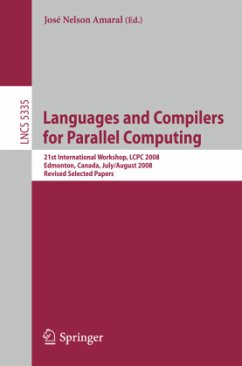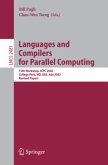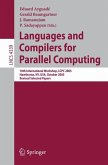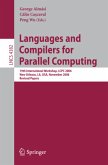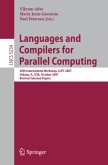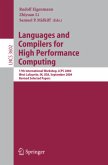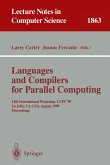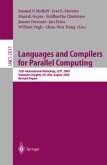In 2008 the Workshop on Languages and Compilers for Parallel Computing left the USA to celebrate its 21st anninversary in Edmonton, Alberta, Canada. Following its long-established tradition, the workshop focused on topics at the frontierofresearchanddevelopmentinlanguages,optimizingcompilers,appli- tions, and programming models for high-performance computing. While LCPC continues to focus on parallel computing, the 2008 edition included the pres- tation of papers on program analysis that are precursors of high performance in parallel environments. LCPC 2008 received 35 paper submissions. Eachpaper received at least three independent reviews, and then the papers and the referee comments were d- cussed during a Program Committee meeting. The PC decided to accept 18 papers as regular papers and 6 papers as short papers. The short papers appear at the end of this volume. The LCPC 2008 program was fortunate to include two keynote talks. Keshav Pingali's talk titled "Amorphous Data Parallelism in Irregular Programs" - gued that irregular programs have data parallelism in the iterative processing of worklists. Pingali described the Galois system developed at The University of Texas at Austin to exploit this kind of amorphous data parallelism. The second keynote talk, "Generic ParallelAlgorithms in Threading Building Bocks (TBB)," presented by Arch Robison from Intel Corporation addressed very practical aspects of using TBB, a production C++ library, for generic p- allel programming and contrasted TBB with the Standard Template Library (STL).
Bitte wählen Sie Ihr Anliegen aus.
Rechnungen
Retourenschein anfordern
Bestellstatus
Storno

